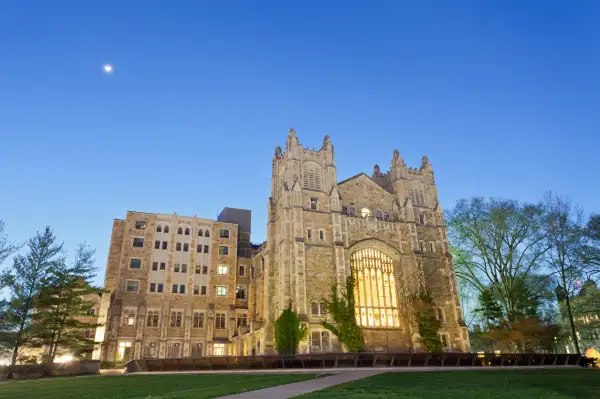The 25 Best Public Colleges for Big Paychecks

Economists have repeatedly shown that higher education pays off on average—that is, that most college graduates end up earning so much more than those who didn’t attend college, that they make back the cost of tuition, and typically get a six-figure “return on investment” by their mid 40s.
But the size of an individual student's payoff varies wildly depending on the student's major, the quality of the college and the price they paid for school. That's why a new analysis finds that it's not just the famous (and expensive) private schools that deliver the biggest financial return for your tuition dollars.
In fact, the top-ranking college in PayScale's newly released 2017 College ROI Report is a highly affordable public college: the U.S. Merchant Marine Academy, a service academy that offers free tuition. Its graduates out-earn peers with just a high school degree by more than $1 million over a 20-year period, PayScale found.
PayScale tallies earnings as a return on investment, or how much more you earn than a high school graduate, minus how much you paid for the degree. For students who pay the full sticker price, that math tends to disadvantage private colleges, since their sticker prices are so much higher than public universities. Even so, more than 60% of the top 50 colleges in PayScale's ranking are selective private schools. (Read about the colleges where studying the liberal arts pays off.)
But since the majority of college students attend public institutions in their home state, Money decided to look at the state schools most likely to pay off. (Although the Merchant Marine Academy is public, as one of the five U.S. service academies, it's not a state school.) We started with the schools' 20-year ROI, as calculated by PayScale based on in-state tuition, but then factored in the school's six-year graduation rate, eliminating any school where fewer than three-quarters of students earn a degree in that time period.
Overall, 15 different states have a college on the list. California, with its reputation for comparatively affordable colleges and its high average salaries, has seven—more than any other state.
While the following ranking is based on in-state costs, it's worth noting that PayScale also produces a ranking that factors in out-of-state tuition for public colleges—and that five of the schools on the following list actually make it into the top 20 even when considering that higher cost. Most of those colleges—Colorado School of Mines, Georgia Institute of Technology, University of California-Berkeley, California Polytechnic University-San Luis Obispo, and the University of California-San Diego—are known for their successful science and technology departments.
| College | Net 20 Year ROI | Acceptance Rate |
|---|---|---|
| Colorado School of Mines | $883,000 | 38% |
| Georgia Institute of Technology | $824,000 | 32% |
| University of California-Berkeley | $732,000 | 17% |
| California Polytechnic State University-San Luis Obispo | $678,000 | 31% |
| University of California-San Diego | $623,000 | 34% |
| University of Virginia | $601,000 | 30% |
| Virginia Polytechnic Institute and State University | $582,000 | 73% |
| Texas A & M University-College Station | $569,000 | 67% |
| SUNY at Binghamton | $563,000 | 42% |
| University of Illinois at Urbana-Champaign | $561,000 | 66% |
| University of Maryland-College Park | $550,000 | 45% |
| University of Michigan-Ann Arbor | $533,000 | 26% |
| University of Washington-Seattle Campus | $531,000 | 53% |
| University of California-Los Angeles | $527,000 | 17% |
| Rutgers University-New Brunswick | $521,000 | 58% |
| The University of Texas at Austin | $513,000 | 39% |
| University of California-Irvine | $498,000 | 39% |
| College of William and Mary | $493,000 | 34% |
| University of California-Santa Barbara | $488,000 | 33% |
| University of Delaware | $476,000 | 67% |
| University of California-Davis | $472,000 | 38% |
| James Madison University | $469,000 | 73% |
| University of Connecticut | $464,000 | 53% |
| Miami University-Oxford | $457,000 | 65% |
| Clemson University | $447,000 | 51% |
PayScale's income data is based on nearly 1.3 million respondents to salary surveys collected over the past 10 years.
PayScale also, by the way, calculates a return on investment for students who receive financial aid. That ranking tends to be dominated by tech colleges that are wealthy enough to award significant grant money—such as Massachusetts Institute of Technology, Harvey Mudd, and California Institute of Technology.
